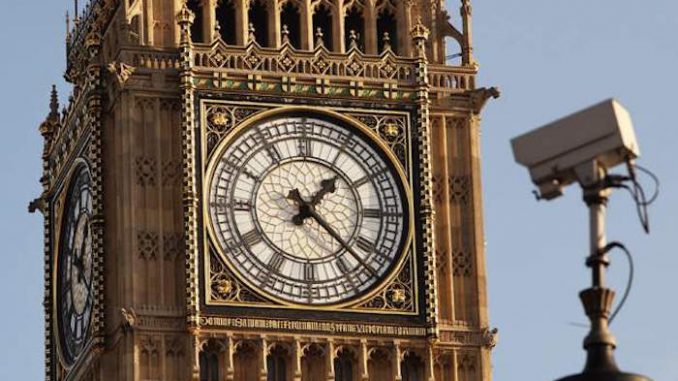
According to newly released documents from Edward Snowden, the UK influenced the NSA’s decision to implement a “collect it all” strategy in surveillance.
It was the UK that pursued an aggressive Orwellian-style mass surveillance system that eventually got adopted by the US, Snowden claims.

BYPASS THE CENSORS
Sign up to get unfiltered news delivered straight to your inbox.
You can unsubscribe any time. By subscribing you agree to our Terms of Use
Latest Video
Arstechnica.co.uk reports:
During a June 2008 visit to the Menwith Hill monitoring station in North Yorkshire, then-director of the NSA Keith Alexander asked: “Why can’t we collect all the signals, all the time?” He went on: “Sounds like a good summer homework project for Menwith!”
Menwith Hill Station—which formerly monitored Soviet signals and is now the NSA’s largest overseas spying base—expanded greatly in the wake of Alexander’s challenge, as The Intercept reports in its coverage of the new Snowden documents:
Between 2009 and 2012, Menwith Hill spent more than $40 million on a massive new 95,000-square-foot operations building—nearly twice the size of an average American football field. A large chunk of this space—10,000 square feet—was set aside for a data center that boasted the ability to store huge troves of intercepted communications.
During the renovations, the NSA shipped in new computer systems and laid 182 miles of cables, enough to stretch from New York City to the outskirts of Boston. The agency also had a 200-seat-capacity auditorium constructed to host classified operations meetings and other events.
The leaked documents reveal that, for years, the UK and US governments put out a “cover story” that Menwith Hill Station was used to provide “rapid radio relay and conduct communications research.” In fact, its striking white domes—around 30 of them—are used to eavesdrop on communications as they are sent through the air from satellites.
That method contrasts with the other NSA and GCHQ bases that monitor signals passing through the fibre-optic cables linking countries.
Menwith Hill Station also draws on US spy satellites orbiting above target countries around the world. The satellites can locate and capture signals on the ground below generated by mobile phones and even Wi-Fi networks.
One of the most important tools used at Menwith Hill Station was Ghosthunter, the new leaks reveal, whose primary role was “to learn and establish pattern of life for known terrorists who use Internet cafes to communicate.” The focus on Internet cafes is explained by the fact that in the areas of interest—mostly in the Middle East—Internet connections are often routed via VSAT satellite systems, which makes them easier to intercept.
VSAT surveillance was used to direct military operations: one document provided by Snowden speaks of “30 enemy killed” in Afghanistan as a result of signals intelligence passed to those in the field. Another leak speaks of Menwith Hill Station analysts finding “a new way to geolocate targets who are active at Internet cafes in Yemen.”
The same memo speaks of an associated programme called Ghostwolf which “supports efforts to capture or eliminate key nodes in terrorist networks.”
As the Intercept points out, “The description of GHOSTWOLF ties Menwith Hill to lethal operations in Yemen, providing the first documentary evidence that directly implicates the UK in covert actions in the country.” That’s problematic, because Yemen is not a war zone, so those targeted by drones there would not be considered “combatants” and anyone involved in their killing would not be entitled to “combatant immunity.”
This is not a new issue: back in 2014, soon after the first Snowden documents were published, the barrister Jemima Stratford QC published a 32-page analysis of the legal implications in which she warned that “An individual [working at GCHQ] involved in passing that information [used for US drone strikes against non-combatants] is likely to be an accessory to murder.”
The latest leaks suggest that UK citizens working at Menwith Hill Station may also run this risk.


